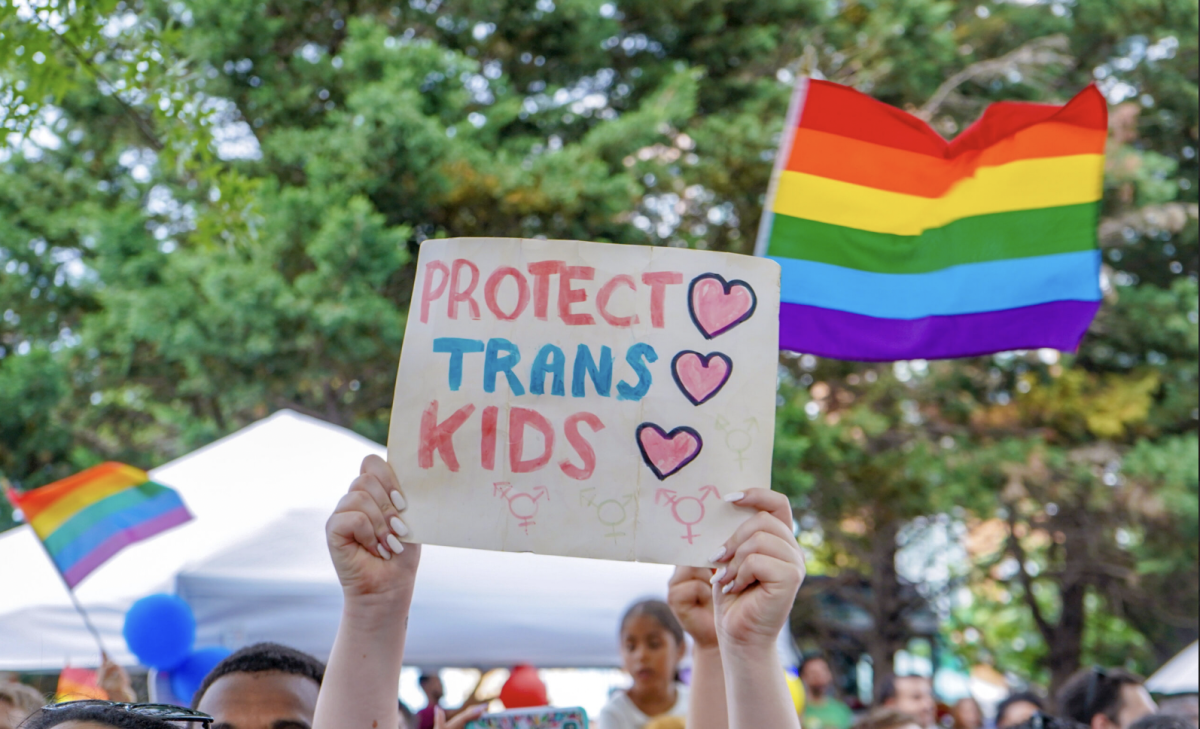Five school districts in Northern Virginia — Fairfax, Arlington, Alexandria, Loudoun and Prince William — are locked in a political and legal dispute against the U.S. Department of Education regarding the districts’ policies that protect transgender students.
The center of the conflict is the districts’ policies that allow transgender students restroom and locker room access that align with their gender identity. The Education Department, however, claims this violates Title IX, a federal law that prohibits sex-based discrimination in education programs.
An investigation into several Virginia school districts was launched following a complaint filed by the conservative legal group America First Legal, which stated that these policies may cause some cisgender students to feel a lack of safety or comfort when using sex-segregated restrooms and locker rooms. The Education Department launched an investigation into the complaint on Feb. 12, which resulted in the claim that the gender policies of all five districts violated Title IX.
Many schools have gender policies to accommodate students who identify as transgender, nonbinary or other identities. Research suggests that in Virginia, about 1.2% of children ages 13 to 17 identify as transgender. LGBTQ+ advocates highlight that these gender policies are a way to make schools a welcoming, inclusive and comfortable environment for all identities, which is important for the mental health of young transgender people.
The five districts were given 10 days to agree to a proposal that would require them to revoke their gender policies and separate locker room and bathroom facilities by biological sex, not gender identity.
The districts declined, pointing to a 2020 ruling by the 4th U.S. Circuit Court of Appeals in the case of Grimm v. Gloucester County School Board. In that case, the court found that a school board’s policy restricting a transgender student’s access to the boys’ restroom was discriminatory. The Northern Virginia districts argue that this ruling legally prevents them from changing their current, more inclusive policies.
In response, the Education Department has now labeled these school districts as “high risk,” a designation that could affect federal funding by requiring the districts to pay significant expenses upfront and then seek reimbursement.
While no schools have lost money yet, tens of millions of dollars dedicated to the education of low-income students, special education programs and other federally funded services are now at risk.
Arlington County representatives said that this new status affects $23 million in school funding. The full effect of this decision by the Education Department on funds and programs in the long term is still unclear, but the new status was meant as a punishment for not complying with the agreement.
“States and school districts cannot openly violate federal law while simultaneously receiving federal funding with no additional scrutiny,” Education Secretary Linda McMahon said.
Two of the affected districts — Fairfax County and Arlington County — have gone as far as filing lawsuits against the Education Department, claiming that they are now in an impossible position. They have asked a judge to block the federal government from withholding funds over this issue. However, Judge Rossie D. Alston Jr. of the U.S. District Court for the Eastern District of Virginia dismissed the case on Sept. 5, stating that the federal district court does not have the authority to tell the federal government how it should distribute its money.
“We are deeply disappointed with today’s decision and are evaluating legal and practical options going forward. The court’s decision puts at risk the health and safety of thousands of students, jeopardizing access to free meals, counseling and academic resources,” Arlington Public Schools said in a statement.
The underlying issue appears to be a struggle with interpretations of Title IX.
The school districts and their supporters argue that the law’s protections include gender identity, while the federal government insists that it refers to biological sex. LGBTQ+ advocates say that failing to protect transgender students violates Title IX.
Others, however, say that protecting transgender students discriminates against cisgender students, which is also a violation of the law.











































